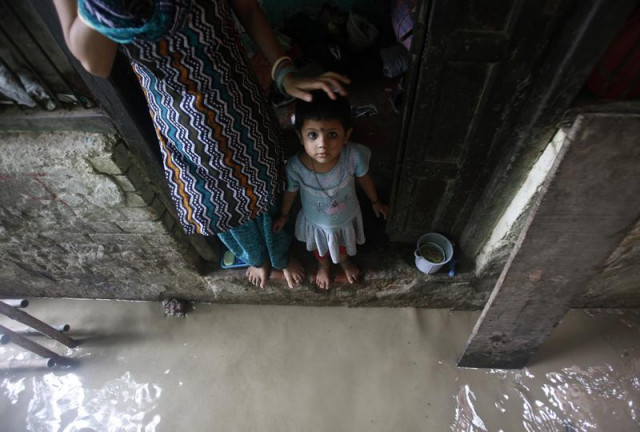Disaster management: Is Karachi prepared for earthquakes? Experts say no
Govt officials, journalists, health practitioners discuss city’s ability to deal with a calamity.

Govt officials, journalists, health practitioners discuss city’s ability to deal with a calamity. PHOTO: REUTERS.
If you want to find out how prepared Karachi is to deal with an earthquake, it is perhaps best to get all stakeholders on board.
And this is exactly what Commecs Institute of Business and Emerging Sciences (Cibes) did when they invited government officials, journalists, health practitioners and others to discuss the issue on Saturday afternoon. The speakers included Cibes director Arif Dossul, Institute of Meteorology and Geophysics deputy director Sohail Gadiwala, journalist Owais Tohid, Aman Foundation emergency medical services head Athar Jamal, Provincial Disaster Management Authority’s Ajay Kumar and the guest of honour, city commissioner Shoaib Ahmed Siddiqui.
The seminar began with precursory explanation of the causes of earthquakes and ways to reduce the damages they cause. One of the factors Dossul stressed on was the reinstallation of the institution of civil defence and its training. “The institution may still exist, but it has died,” he said. He also underscored the need for architects and engineers to make stable buildings.
“We need to develop a sense of responsibility,” Dossul claimed. “Architects and builders would rather make additional profits for themselves than construct sound buildings that comply with all standards.”
The commissioner admitted that coordination between various agencies is very low. “We are in the process of building upon this,” he assured. Siddiqui spoke of a committee that has brought together Karachi’s municipal services. Through coordination and integration of resources, they have discovered new resources as well, he shared.
“We must make the facilities known to the people,” he said. “If Japan can get out of a disaster by making buildings earthquake resistant, so can Karachi.”

Other speakers brought their respective knowledge to the table, discussing the issue with regards to their own field. Tohid spoke of the media as a “shock absorber” and the “bridge between the people and the authorities”. “The role of the media is not only that of a watchdog, but it can also to bring hope to the population and to highlight heroes amid the devastation,” he claimed.
“There are 400 ambulances in the city and only 80 of them are capable of making interventions in the case of a life-threatening medical emergency,” pointed out Jamal. He stated that the Aman Foundation has 80 Basic Life Support Ambulances that “have everything short of an ICU to resuscitate the patient to reach the hospital”.
Jamal said there’s a major lack of resources and capabilities to manage any natural disaster,” he claimed. “A capital intensive job like this cannot be left on the shoulders of NGOs.” An unexpected speaker at the seminar was the dean of civil engineering, environment and architecture at NED University, Dr Sarosh H. Lodhi. He spoke of the vulnerability of the buildings all over Karachi, especially in the South. “With the support of the finance department of the Sindh government and the commissioner, we can prepare ourselves. The future is not as bleak as we think.”
Published in The Express Tribune, February 2nd, 2014.



















COMMENTS
Comments are moderated and generally will be posted if they are on-topic and not abusive.
For more information, please see our Comments FAQ